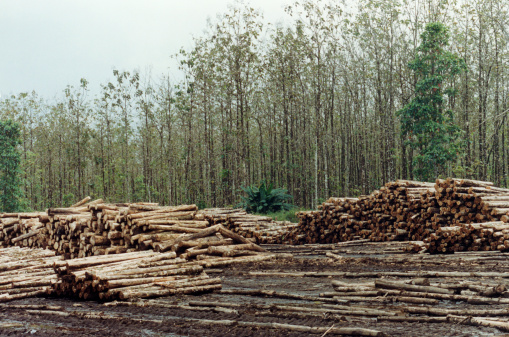
Amid upheaval in South Sudan, the country’s teak forests fall

Sprawling teak forests, planted nearly a century ago to supply lumber and government income, are fast disappearing in South Sudan as timber companies take advantage of the country’s chaos to extract large amounts of wood, environmentalists say.
The rapid felling threatens worsening erosion and environmental damage in the country, and has provoked uprisings by local communities, who have not received promised roads and other assistance as part of timber extraction deals, they say.
“There is a concern by the way the teak is cut in South Sudan and this will have some serious negative impacts on the people and the environment,” warned Bio Kuer, executive director of the Juba-based Nile Initiative for Health and Environment.
Timber harvesting “has to be lawfully (managed) by a competent authority – which is the government of South Sudan – and not by cartels like what we are seeing now,” the scientist said.
British colonists planted thousands of hectares of teak plantations in southern Sudan in the 1940s, as an industrial source of timber.
That has given South Sudan today some of the largest stands of the valuable hardwood trees in Africa, though the extent of the forests remaining is not clearly documented.
The United Nations Environment Program (UNEP) estimated in 2007 that the teak, if sustainably harvested, could generate up to $50 million a year in export revenue for South Sudan.
But teak exports currently bring the beleaguered nation only about $1 million to $2 million year, according to the Ministry of Environment and Forestry.






